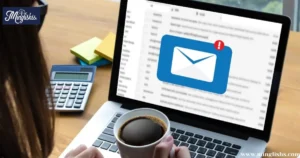“Explore professional alternatives to convey your apologies for delays in email communication.”
In professional email communication, acknowledging delays and expressing apologies is crucial for maintaining good relationships and ensuring smooth interactions. While “Sorry to keep you waiting” is a common way to apologize for a delay, using varied expressions can help convey your message more effectively and professionally. Finding the right alternative can also add a touch of formality or personalization to your apology.
This article provides a comprehensive list of professional ways to say “sorry to keep you waiting” in an email. Each alternative is explained with scenarios and subject explanations to help you choose the most appropriate phrase for different situations. Whether you’re responding to a client, colleague, or manager, these alternatives will assist you in expressing your apology effectively.
By the end of this guide, you’ll have a range of options to handle delays in email communication with professionalism and courtesy. Let’s explore these alternatives and how they can be applied in various contexts.
25 Professional Alternatives to “Sorry to Keep You Waiting”
1. “Thank You for Your Patience”
Scenario: After a delay in responding to a client’s inquiry, you write, “Thank you for your patience. I’m now ready to address your concerns.”
Subject Explanation: This phrase expresses gratitude for the recipient’s patience and indicates that you’re now prepared to address their needs.
Additional Tip: Use this to acknowledge the delay while showing appreciation for their understanding.
2. “I Appreciate Your Understanding”
Scenario: When replying to a colleague after a delay, you might say, “I appreciate your understanding regarding the delay. Here is the information you requested.”
Subject Explanation: This phrase acknowledges the recipient’s patience and understanding while providing the necessary information.
Additional Tip: Suitable for situations where you want to express gratitude for the recipient’s tolerance of the delay.
3. “Thank You for Your Continued Patience”
Scenario: If a client has been waiting for an update, you could write, “Thank you for your continued patience. I’m happy to provide the latest update on your request.”
Subject Explanation: This phrase acknowledges the ongoing nature of the recipient’s patience and updates them on the status.
Additional Tip: Use this to reinforce appreciation for their patience over an extended period.
4. “I Apologize for the Delay”

Scenario: When acknowledging a delay in responding to an email, you might write, “I apologize for the delay in my response. Here is the information you need.”
Subject Explanation: This phrase directly addresses the delay and indicates that you’re now ready to provide the requested information.
Additional Tip: Ideal for straightforward and formal apologies regarding delays.
5. “I Regret the Delay in My Response”
Scenario: When responding to a client after a delay, you might say, “I regret the delay in my response and appreciate your patience. Here is the requested information.”
Subject Explanation: This phrase expresses regret over the delay and appreciation for the recipient’s patience.
Additional Tip: Use this to convey a sense of regret while maintaining a professional tone.
6. “I Apologize for the Delay in Getting Back to You”
Scenario: If a delay occurred in your response to a manager, you might write, “I apologize for the delay in getting back to you. I have now reviewed the details and am ready to proceed.”
Subject Explanation: This phrase acknowledges the delay in communication and signals readiness to move forward.
Additional Tip: Use this to address the delay while indicating that you’re prepared to take action.
7. “I’m Sorry for the Delay in My Reply”
Scenario: When responding to a colleague after a delay, you might say, “I’m sorry for the delay in my reply. Please find the information you requested below.”
Subject Explanation: This phrase conveys an apology for the delay and provides the requested information.
Additional Tip: Suitable for both formal and informal professional settings.
8. “I Apologize for Any Inconvenience Caused”
Scenario: When acknowledging a delay that may have caused inconvenience, you write, “I apologize for any inconvenience caused by the delay. I’m now addressing your request.”
Subject Explanation: This phrase recognizes the potential inconvenience caused by the delay and assures the recipient that the issue is being addressed.
Additional Tip: Use this to acknowledge the impact of the delay and demonstrate a commitment to resolving the matter.
9. “I Regret Any Delay in Responding”
Scenario: After a delay in replying to a client, you might say, “I regret any delay in responding to your inquiry. Please see my detailed response below.”
Subject Explanation: This phrase expresses regret for the delay and provides the necessary information.
Additional Tip: Use this to express regret while ensuring the recipient receives the required information.
10. “Thank You for Your Patience During This Time”
Scenario: If a delay was due to a specific issue, you could write, “Thank you for your patience during this time. I’m now ready to assist you with your request.”
Subject Explanation: This phrase acknowledges the recipient’s patience and indicates that you’re now prepared to help.
Additional Tip: Use this to show appreciation for their patience while addressing the delay.
Other Ways to Say “Great Asset to the Team”
11. “I Appreciate Your Patience While I Handled This”
Scenario: When responding after resolving an issue, you might say, “I appreciate your patience while I handled this matter. Here’s the information you needed.”
Subject Explanation: This phrase acknowledges the recipient’s patience during the handling of an issue.
Additional Tip: Use this to show appreciation for their patience during problem resolution.
12. “Thank You for Waiting”
Scenario: If you’re providing an update after a delay, you might say, “Thank you for waiting. I’m providing the update you requested.”
Subject Explanation: This phrase acknowledges and thanks the recipient for their patience while providing the update.
Additional Tip: Suitable for informal and formal contexts to convey appreciation for the recipient’s patience.
13. “I Apologize for the Delay and Thank You for Your Patience”
Scenario: After a delay in responding to a request, you might say, “I apologize for the delay and thank you for your patience. Here’s the information you asked for.”
Subject Explanation: This phrase combines an apology with appreciation for the recipient’s patience.
Additional Tip: Use this to address both the delay and express gratitude for their understanding.
14. “I’m Sorry for the Delay in Our Communication”
Scenario: When addressing a delay in email communication, you could write, “I’m sorry for the delay in our communication. Let’s discuss the matter further.”
Subject Explanation: This phrase acknowledges the delay and indicates a readiness to continue the discussion.
Additional Tip: Use this to express regret and to prompt further communication.
15. “I Apologize for the Extended Wait”
Scenario: If the delay was longer than expected, you might say, “I apologize for the extended wait. I’ve now addressed your query.”
Subject Explanation: This phrase acknowledges that the delay was longer than anticipated and indicates that the query has been addressed.
Additional Tip: Suitable for situations where the delay was notably prolonged.
16. “I Regret the Wait and Appreciate Your Understanding”
Scenario: When replying after a significant delay, you might say, “I regret the wait and appreciate your understanding. Here’s the information you requested.”
Subject Explanation: This phrase expresses regret for the delay and appreciation for the recipient’s understanding.
Additional Tip: Use this to acknowledge both the delay and the recipient’s understanding of the situation.
17. “Thank You for Your Patience in Awaiting My Response”
Scenario: When responding after a delay, you might write, “Thank you for your patience in awaiting my response. I’m now available to assist you.”
Subject Explanation: This phrase acknowledges the recipient’s patience in waiting for your response and indicates your readiness to assist.
Additional Tip: Ideal for formal communication to convey appreciation and readiness.
18. “I Apologize for the Delay and Any Impact It May Have Had”
Scenario: After a delay that might have affected a project, you might say, “I apologize for the delay and any impact it may have had on the project. Here’s the updated information.”
Subject Explanation: This phrase addresses both the delay and any potential impact on the project.
Additional Tip: Use this to acknowledge the possible effects of the delay and provide updated information.
19. “I’m Sorry for the Delay in Addressing Your Request”
Scenario: When replying after a delay in addressing a request, you might say, “I’m sorry for the delay in addressing your request. I have now completed it.”
Subject Explanation: This phrase acknowledges the delay and confirms that the request has been addressed.
Additional Tip: Use this to convey both an apology and confirmation of completion.
20. “I Apologize for the Late Response and Appreciate Your Patience”
Scenario: When addressing a late response to an inquiry, you might write, “I apologize for the late response and appreciate your patience. Here’s the information you need.”
Subject Explanation: This phrase combines an apology for the late response with appreciation for the recipient’s patience.
Additional Tip: Use this to address the delay and show gratitude for their patience.
21. “I Regret the Delay and Am Here to Assist You Now”

Scenario: If you’ve been delayed in assisting with a request, you might say, “I regret the delay and am here to assist you now. Please let me know how I can help.”
Subject Explanation: This phrase expresses regret for the delay and indicates readiness to assist.
Additional Tip: Use this to convey both regret and a willingness to help.
22. “Thank You for Bearing with Me During the Delay”
Scenario: When acknowledging a delay in providing information, you might write, “Thank you for bearing with me during the delay. Here’s the information you requested.”
Subject Explanation: This phrase acknowledges the recipient’s patience and provides the requested information.
Additional Tip: Suitable for situations where the recipient’s patience was particularly appreciated.
23. “I Apologize for the Delay and Any Inconvenience It May Have Caused”
Scenario: If the delay might have caused inconvenience, you could say, “I apologize for the delay and any inconvenience it may have caused. Here’s the update you needed.”
Subject Explanation: This phrase addresses both the delay and any inconvenience it may have caused.
Additional Tip: Use this to acknowledge and apologize for the impact of the delay.
24. “I’m Sorry for the Delay in Getting Back to You”
Scenario: When responding after a delay, you might write, “I’m sorry for the delay in getting back to you. I’m now available to discuss the matter further.”
Subject Explanation: This phrase acknowledges the delay and indicates availability for further discussion.
Additional Tip: Use this to address the delay and prompt continued communication.
25. “I Apologize for the Delay and Am Available to Assist You Now”
Scenario: After a delay in responding to a request, you might say, “I apologize for the delay and am available to assist you now. Please let me know how I can help.”
Subject Explanation: This phrase expresses an apology for the delay and indicates availability for assistance.
Additional Tip: Use this to convey both an apology and readiness to assist.
Additional Tips
When choosing an alternative to “sorry to keep you waiting,” consider the tone and formality required for the situation. Tailor your response to fit the context of the delay and your relationship with the recipient. Using varied expressions can help maintain professionalism and convey sincerity in your communication.
Ensure that your chosen phrase aligns with the overall tone of your email and effectively addresses the recipient’s concerns. Acknowledging delays with appropriate alternatives helps to maintain positive relationships and demonstrates your commitment to effective communication.
Pros and Cons
Pros
- Professionalism: Using varied phrases maintains a professional tone while addressing delays.
- Flexibility: Offers a range of expressions suitable for different contexts and levels of formality.
- Personalization: Provides options to tailor your apology to the specific situation and recipient.
Cons
- Misinterpretation: Some phrases may be misunderstood if not used in the appropriate context.
- Overuse: Frequent use of certain phrases might become repetitive and lose their impact.
- Complexity: Some phrases may be too formal or complex for certain situations, potentially creating distance.
Conclusion
Addressing delays in email communication with professionalism and courtesy is essential for maintaining positive relationships. By using these 25 alternatives to “sorry to keep you waiting,” you can convey your apology effectively and maintain a professional tone. Tailoring your response to the context and recipient will help ensure that your message is both reassuring and appropriate.
With these alternatives, you can enhance your email communication skills and handle delays with grace and professionalism. Choosing the right phrase based on the situation and your relationship with the recipient will help you maintain effective and positive communication.

Hi, I’m Ethan Matthews: I make English easy with my clear and simple teaching style. I love helping learners feel confident in every lesson.










